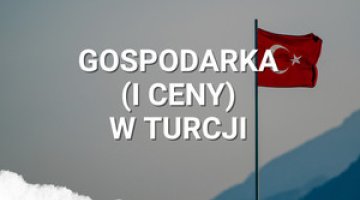Erdoğan in Greece: a historic visit with revisionism in the background
Recep Tayyip Erdoğan visited Greece on 6–7 December. This was the first visit of a Turkish president to this country since 1952 but not Erdoğan’s first visit who was there in 2002 and 2010 as prime minister. The topics of the conversations included co-operation as part of the Turkish-EU migration agreement, the Cypriot issue and the Turkish minority’s situation in Greece. Even though both parties had pinned high hopes on the visit, and both the Turkish and Greek media branded it as historic, Ankara and Athens were unable to reach a compromise over any of the key issues. Furthermore, President Erdoğan, when giving a speech with the Greek president, Prokopis Pavlopoulos, at a press conference in Athens, made reference to Turkey’s good will which enabled Greece to re-join the military structures of NATO in 1980 and mentioned the need to revise the Treaty of Lausanne of 1923 which included the definition of Turkey’s modern borders.
Commentary
- Even though both countries are NATO member states and have been engaged in co-operation over the strategic issues, for example resolving the migration crisis, Turkish-Greek relations have remained traditionally strained. The main sources of disagreement include the disputes over the border on the Aegean Sea which provoked incidents in the past in which the armed forces of both countries, formally allies, were engaged. Over the past year tension has been caused for example in connection with the visit in January this year of the Turkish Chief of Staff, General Hulusi Akar, to waters surrounding the disputed islands Imia/Kardak and also as a consequence of the failure of talks on the unification of Cyprus conducted under the aegis of the UN (they broke down in July this year).
- The need to revise the Treaty of Lausanne which Erdoğan mentioned in the case of relations with Greece does not concerns so much territorial issues (such an impression might be created because Erdoğan – most likely intentionally – used general phrases) but rather the rights of the Turkish minority which are also regulated under this treaty. Nevertheless, Erdoğan’s speech fits in with the revisionist rhetoric which has been intensifying in Turkish narrative over the past few years. Until recently it was used for internal needs and concerned above all Turkey’s south-eastern neighbourhood (mainly the issue of Iraqi Mosul). The fact that Erdoğan resorted to it in Greece is a sign that he also is prepared to utilise this instrument in contacts with Turkey’s neighbours, even though Erdoğan addressed his message this time above all to his Turkish audience.
- Greece is not the only country with which Turkey’s relations have deteriorated – this has also happened in the case of its relations with Israel over the past week. The primary cause was the decision of the US president, Donald Trump, to move the US embassy from Tel Aviv to Jerusalem. This provoked a great deal of controversy in Muslim countries and was also criticised in Turkey. Erdoğan’s emotional and insulting statements (he called Israel a ‘terrorist state’ on 10 December) as well as anti-Turkish statements from Israeli politicians significantly worsened the climate of relations between the two countries. These relations were normalised last year but their rank was reduced after the incident with the Turkish flotilla which was heading to the Gaza Strip in 2010.





